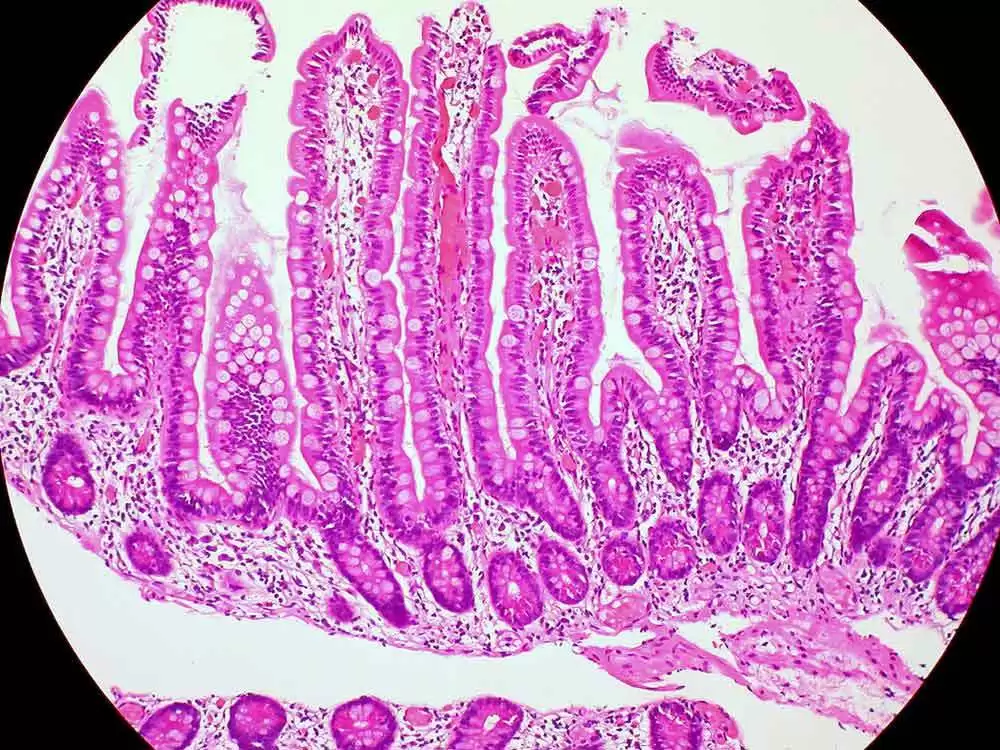
Celiac.com 03/07/2024 - A recent study of mice has shed light on the potential effects of chronic oral exposure to silicon dioxide (fg-SiO2), a common food additive, on food sensitivities and immune responses. This research is particularly relevant to individuals with celiac disease and other food sensitivities.
Silicon dioxide, a versatile additive, plays a vital role in maintaining the quality and integrity of numerous dry and powdered food products. It can be found in ingredients of more than 2,600 processed foods worldwide, from savory soups to aromatic spices, and even infant formula. Its presence ensures that food items remain free-flowing and devoid of unsightly lumps, and it isn't always included on ingredient lists.
Celiac.com Sponsor (A12):
The study, led by a team of researchers, aimed to understand how exposure to silicon dioxide, in the form of food-grade silicon dioxide (fg-SiO2), might influence the immune system's response to food antigens. Using mouse models, the researchers investigated the effects of silicon dioxide on oral tolerance (OT) induction and gluten immunopathology.
The research team included Bruno Lamas, Natalia Martins Breyner,, Yann Malaisé, Mark Wulczynski, Heather J. Galipeau, Eric Gaultier, Christel Cartier, Elena F. Verdu, and Eric Houdeau. They are variously affiliated with the Toxalim (Research Centre in Food Toxicology), Team Endocrinology and Toxicology of Intestinal Barrier, INRAE/ENVT/Paul Sabatier University, Toulouse, France; and the Farncombe Family Digestive Health Research Institute, Department of Medicine, McMaster University, Hamilton, Ontario, Canada.
Their findings revealed that exposure to silicon dioxide led to changes in immune cell function and cytokine production in the intestines. Specifically, cells from the mesenteric lymph nodes (MLNs) showed decreased proliferation and reduced secretion of key regulatory cytokines involved in OT, such as interleukin 10 (IL-10) and transforming growth factor beta (TGF-β).
Furthermore, mice exposed to silicon dioxide exhibited signs of intestinal inflammation, including increased levels of fecal lipocalin-2 (Lcn-2) and interferon gamma (IFN-γ). This inflammation was associated with a breakdown of oral tolerance and alterations in immune cell populations in the intestines.
Chronic Oral Exposure to Silicon Dioxide May Worsen Food Sensitivities
In a mouse model of gluten-induced immunopathology, chronic exposure to silicon dioxide exacerbated intestinal damage and inflammation. These effects were observed through changes in villus-to-crypt ratio and increased infiltration of inflammatory T cells.
Overall, the study suggests that chronic oral exposure to silicon dioxide may disrupt oral tolerance induction and worsen food sensitivities, particularly in individuals predisposed to conditions like celiac disease. While the study was conducted in mice, its findings underscore the need for further research to explore the potential link between silicon dioxide exposure and food sensitivities in humans.
In conclusion, people with celiac disease and other food sensitivities may benefit from understanding the potential impact of food additives like silicon dioxide on their immune responses. Further investigation into this area could provide valuable insights into strategies for managing and mitigating food sensitivities in affected individuals.
Read more at Environmental Health Perspectives Journal










Recommended Comments
There are no comments to display.
Create an account or sign in to comment
You need to be a member in order to leave a comment
Create an account
Sign up for a new account in our community. It's easy!
Register a new accountSign in
Already have an account? Sign in here.
Sign In Now